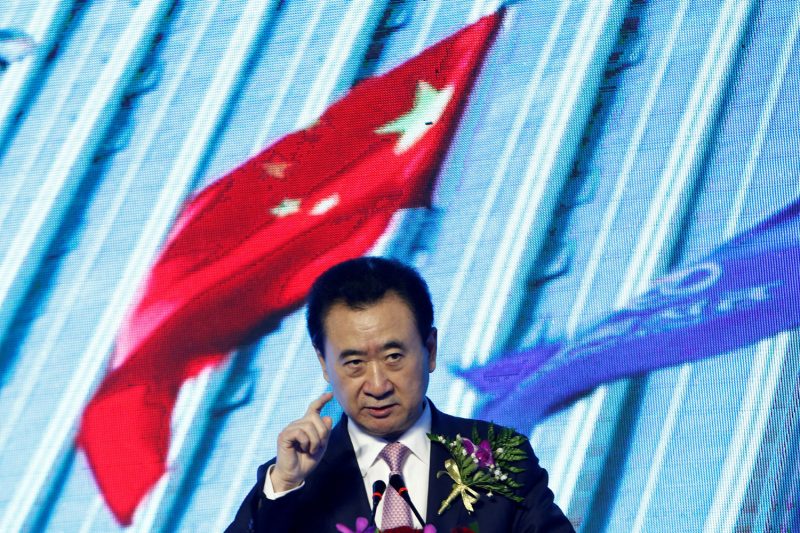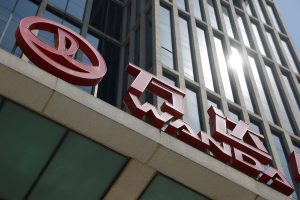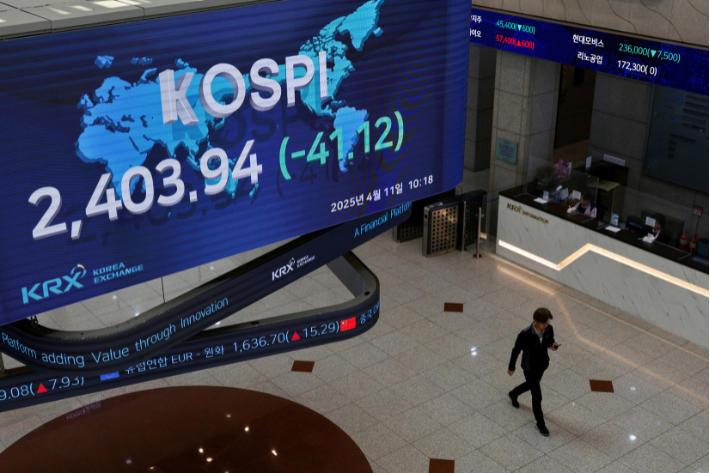(AF) Wanda Group’s move to cut its overseas assets and whittle down its huge pile of debt continues. On May 23, the group’s official website announced that Wanda had sold almost all of its remaining stake in AMC Entertainment, the US cinema chain, and had withdrawn from AMC’s board of directors.
Wanda bought control of the huge theatre chain in 2012 but it now retains only a minority stake in the company. AMC theatre chain was the largest in the US and the world in 2016, and highly profitable, but it suffered a difficult year in 2020 due to the pandemic.
The Chinese conglomerate, which has investments in a vast range of sectors, has had some good fortune this year. It was able to sell large blocks of shares in recent months at prices elevated up to nearly 300% by Reddit-inspired traders, who inflated the stock’s value in January. In February it converted its class B shares to class A, reducing its voting power. And by March it had reduced its majority stake to just 9.8%.
Wanda Group chairman Wang Jianlin, who fell out of favour four to five years ago, is fighting a battle to keep his empire afloat. Wang’s business style and frenzy of debt-funded acquisitions over the past decade is frowned upon by senior officials in Beijing, who see the group (and others in the property and state enterprise sectors) as a potential threat that could destabilise China’s financial system, if it collapses like other debt-heavy conglomerates such as HNA.
Despite several years of asset sales, Wanda Group still has total debt of close to 360 billion yuan (about $56 billion). It has been gradually clearing its overseas assets, while also stepping up its domestic investment. At the same time, new capital operations are advancing in China.
SALE OF OVERSEAS ASSETS
The announcement on Sunday said Wanda has now stopped all overseas investment. But Wanda Films and AMC still plan to sign a long-term strategic cooperation agreement to carry out regular exchanges and training. AMC’s official website also stated that after the sale of shares held by Wanda, certain films produced by the Chinese group would be shown in selected AMC theatres.
The company’s withdrawal from AMC started as early as 2018, when Wanda reduced its holding for the first time. Two years later, at the end of 2020, Wanda continued to cut its shareholding ratio to just over 23%.
In the years leading up to this, Wanda went on a global asset-buying spree.
In 2015, a subsidiary of Wanda bought a controlling stake of Hoyts cinema chain in Australia and New Zealand for about A$1 billion. And in January 2016, Wanda said it had done a deal to buy Legendary Pictures for $3.5 billion in Hollywood. It was the largest takeover of an American media firm by a Chinese company.
But the following year Wanda chairman Wang Jianlin hit rocky water – with Beijing banning Chinese banks from providing loans for the group’s foreign operations. Wanda’s retreat began after Beijing launched a crackdown in mid-2017 on what it viewed as irrational acquisitions by some Chinese conglomerates, Reuters said in a report in October 2018.
That led to Wang saying he would refocus on domestic investments to “respond to the call of the country”.
The government move was a turning point. In addition to its step-by-step withdrawal from AMC, the group began to liquidate other overseas assets. It rapidly offloaded $9 billion in domestic hotels and tourism assets to fellow Chinese property developers but has taken longer to cut back its international holdings.
In February 2018, it sold its 17% stake in Spanish soccer club Atletico Madrid and disposed of prime property developments in London, Sydney and the Gold Coast in Queensland.
In November 2018, Wanda sold a landmark property in Beverly Hills in Los Angeles for US$420 million, then in July 2020 the group sold a 90% interest in a Chicago property for $270 million. The Chicago property was the last of Wanda’s overseas real estate projects, which CBN said brought a cumulative return of approximately 6.6 billion yuan.
Wanda was reportedly contemplating a partial sale of Legendary Pictures several years ago, around the time it gave up majority control of AMC, but it was allegedly unable to find a buyer at the price it wanted.
Meanwhile, there was a report in Australia early this month that Wanda Film had appointed Credit Suisse to find bidders for the Hoyts chain, which operates about 450 screens.
U-TURN TO ‘RETURN HOME’
While scaling down operations abroad, Wanda also stepped up its domestic industrial layout.
In April 2019, Wang attended the Gansu Longshang Conference and announced that he would invest in Gansu again. He aimed to invest in ‘a super-large cultural tourism project,’ five Wanda Plazas, with three of them in Gansu. The group also planned to splash some 45 billion yuan on five-star hotels, to help Wanda regain its domestic investment profile.
After Gansu, Wanda signed cooperation agreements in Yan’an, Chaozhou, Shenyang and other places, and its investment in Shenyang reached 80 billion yuan.
The group has invested heavily in the construction of domestic cultural and tourism projects, but recently it has sought to have an asset-light business management platform, with a view to returning to the Hong Kong stock market.
In March this year, Wanda said it wanted to reorganize operations, technology, data, personnel and other related resources in order to achieve domestic and overseas listings as soon as possible. Therefore, it decided to withdraw its application for a Wanda Commercial A shares IPO.
People close to Wanda told China Business News that Wanda withdrew its IPO in order to prepare for its re-entry to the Hong Kong stock market. But regardless of whether the listing is based on A-shares or Hong Kong stocks, the divestiture of its real estate business was the priority for the commercial management team to successfully go public.
This month, Wanda Commercial Management transferred 100% of its seven commercial management companies to Dalian Wanda Commercial Management. At the end of April, Wanda Commercial Management also divested 13 of its subsidiaries to Dalian Wanda Commercial Management. At the same time, the parent company of Wanda Commercial Management changed from Dalian Wanda Commercial Management to Zhuhai Wanda Commercial Management. Reports said Wanda intends to introduce Zhuhai State-owned assets as a strategic investment in Wanda Commercial Management, but this has yet to be confirmed.
In an interview a few days ago, Xiao Guangrui, the president of Wanda Commercial Management, said that his unit would no longer develop “asset-heavy” projects such as Wanda Plazas – it would implement an “asset-light” strategy.
This stems from heightened government concerns since late last year about the vast amount of debt plaguing both Wanda Group and entities such as China Evergrande in the real estate sector. This means that some of Wanda’s projects announced in recent years may not go ahead.
The name of the game in China, currently, is deleveraging and getting rid of debt. So, analysts are watching closely to see if the real estate and entertainment conglomerate can return to the capital market after its sale of foreign assets and the frequent adjustments it has been forced to make in recent years.
Wang Jianlin, 66, was rated the richest man in Asia six years ago, but his wealth has plunged from about $46 billion to $14 billion. And even that could go, if he fails to keep Wanda afloat.
The pandemic hit the group hard, as it conceded late last year, but its companies reportedly raised just under 50 billion yuan in local and offshore debt, a good chunk of which will be needed repay about 32 billion yuan of domestic bonds due this year.
The fact that China has managed to largely suppress the coronavirus and reopen both malls and cinemas has been a blessing for Wang. But his fight to pay off Wanda’s remaining debt is still far from over.
ALSO SEE:
China’s Wanda converted AMC stock to facilitate Reddit buying spree























